by Jennifer Svetlik
As a community of congregations and nonprofit ministries committed to living like Jesus together, we have an opportunity during this time of increased targeting of our communities to come together to love each other, and bear witness that God’s perfect love casts out all fear.
Over 40% of Mosaic Mennonite Conference’s member congregations are made up primarily of first and second-generation immigrants, from Latin America, Indonesia, and Haiti, among other countries. Beginning in late 2024, a number of these majority-immigrant congregations began to request that Mosaic Conference share information and resources and offer support to help reduce a sense of fear among their members about the possibility of increased arrests and deportations.
The elimination of the “sensitive locations” policy by the Department of Homeland Security for churches as protected spaces in January 2025 further increased a sense of fear around gathering for communal worship by some pastors and their congregants.
Mosaic has been responding to these needs by increasing staff accompaniment with vulnerable congregations, creating and disseminating relevant resources through partnerships with Mennonite Church USA and Mennonite Central Committee, offering Know your Rights trainings, and empowering congregations and ministries to host their own trainings in their communities.
In addition to these efforts, some immigrant-majority congregations began to request accompaniment by U.S. citizens in dominant-culture Mosaic Conference congregations during times of worship.
“More than ninety percent of our congregants come from outside the U.S.,” shared a Mosaic congregation pastor, who requested anonymity to protect his congregation. “A lot of our members currently do not feel safe or comfortable during worship services, because of the changes in immigration policy that make them feel safe unsafe and unwelcome.”
“The reason that we asked for accompaniment is that we need the support from our brothers and sisters from the dominant culture to comfort us and walk with us during this time,” this pastor shared. “Some of our members feel safer seeing Americans sitting in the back of the church. We recognize their presence, we share fellowship together, and we feel less alone.”
The goal of the accompaniment partnerships is to strengthen relational connections between dominant-culture and immigrant-majority congregations in a geographic area, train both congregations with Know Your Rights and Be an Ally information, and for dominant-culture guests to offer a sense of calm and interface with enforcement agents should the need ever arise.
One of the partnerships involves six congregations, including several that are not Mosaic Conference congregations. So far around 30 people in that partnership have visited a local immigrant-majority congregation over the past six weeks.
One of the fruits of this accompaniment work has been a greater sense of fellowship and the creation of new relationships between various congregations. Some of these partnerships were based on prior relationships that congregations have had.
“Our congregation has had a relationship for several years with an immigrant-majority congregation. When they asked for accompaniment, even though we are a small church, it was easy to say yes,” shares Jacob Curtis, Co-Pastor of Ambler (PA) Mennonite.
“We have relationships with other Mennonite churches nearby, so we drew on those relationships and asked them this effort,” Curtis continues. “Everyone who has visited has been impressed by the warmth and energy of the congregation. And they’ve appreciated the chance to get to know each other too. Seeds are being planted. New relationships are being formed. We’re excited to see what God grows from all this goodness!”
At least seven Mosaic Conference congregations are currently involved in congregational pairings, with other dominant-culture congregations still organizing teams for accompaniment. There are Mosaic Conference immigrant-majority congregations still seeking accompaniment relationships with dominant-culture congregations in their area. If your congregation is interested in learning more, email immigration@mosaicmennonites.org.
There are a few other ways Mosaic Conference has been working at supporting our immigrant-majority congregations during this time.
A Mosaic Conference congregation is part of the lawsuit Mennonite Church USA et al. v. United States Department of Homeland Security et al. which asserts that DHS’s reversal of policy violates the first amendment freedom of religion protections. The Preliminary Injunction Hearing for this case has been set for April 4, 2025.
Mosaic is also responding to identified needs for more bilingual communications and community engagement through seeking to hire several more staff members.
The Shalom Fund, the Conference’s mutual aid fund, continues to accept contributions to support immigrant congregations with unexpected needs.
We are grateful for the shows of support across the Conference for those who are most vulnerable among us.

Jennifer Svetlik
Jennifer is Director of Community Engagement & Editor for Mosaic. She grew up near Houston, TX and spent a decade living in intentional community in Washington DC, before moving to Lansdale, PA. She serves as Children’s Faith Formation Director at Salford Mennonite (Harleysville, PA).
Mosaic values two-way communication and encourages our constituents to respond with feedback, questions, or encouragement. To contact Jennifer Svetlik, please email jsvetlik@mosaicmennonites.org.

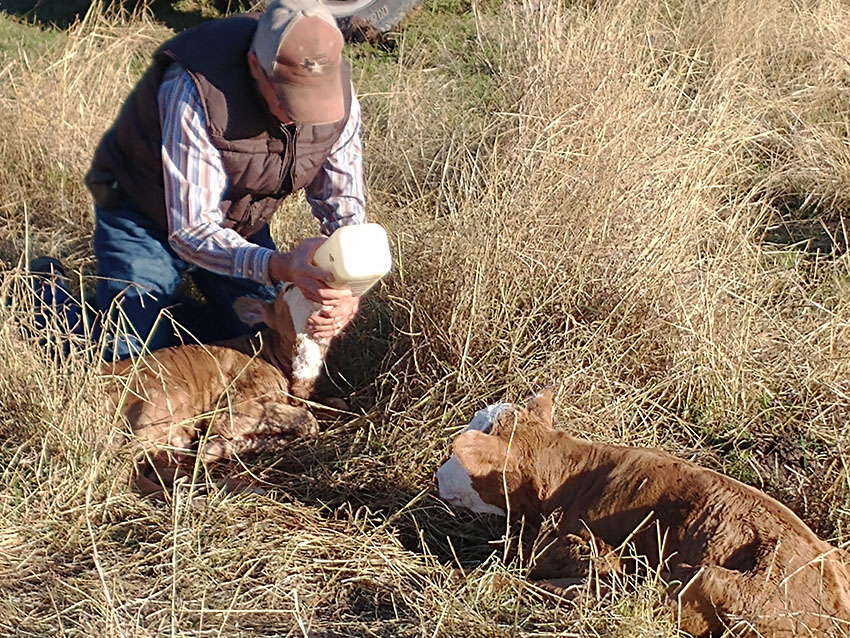
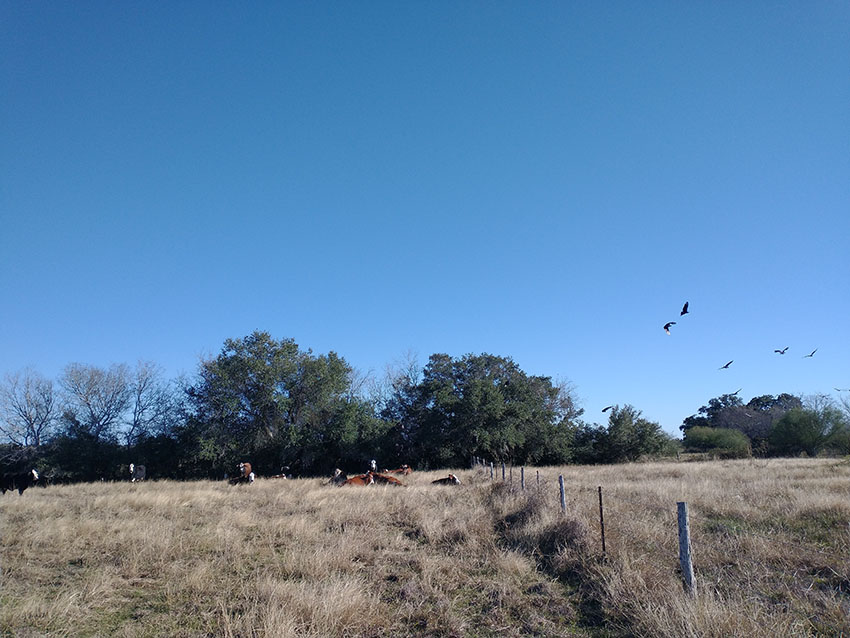


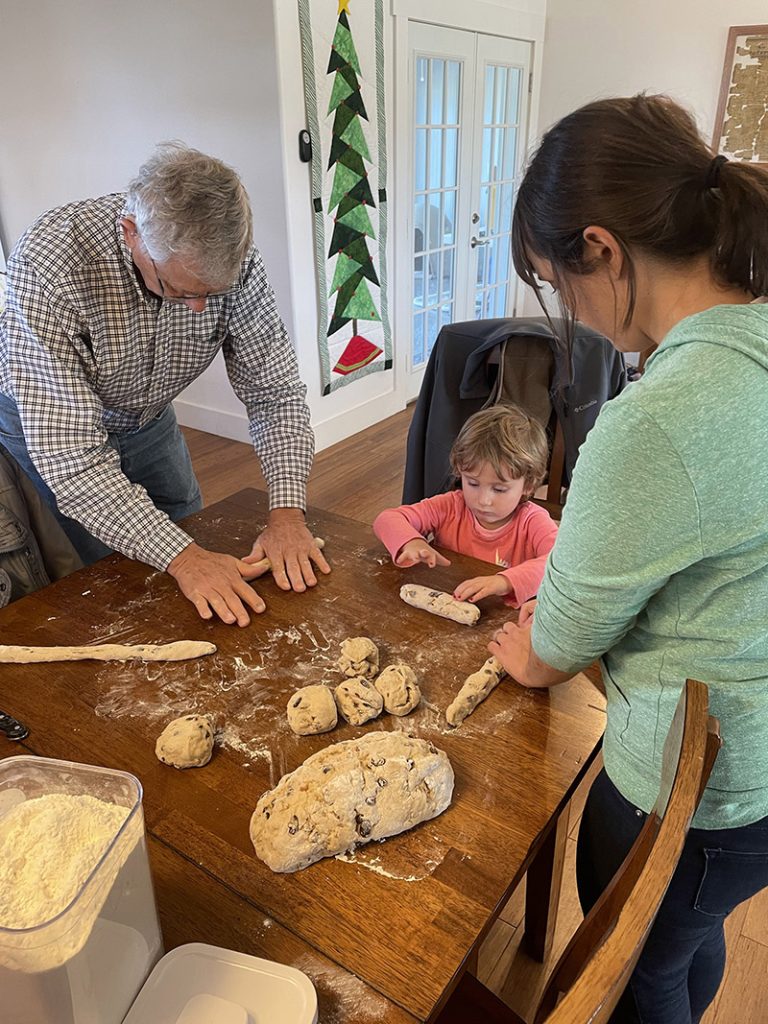
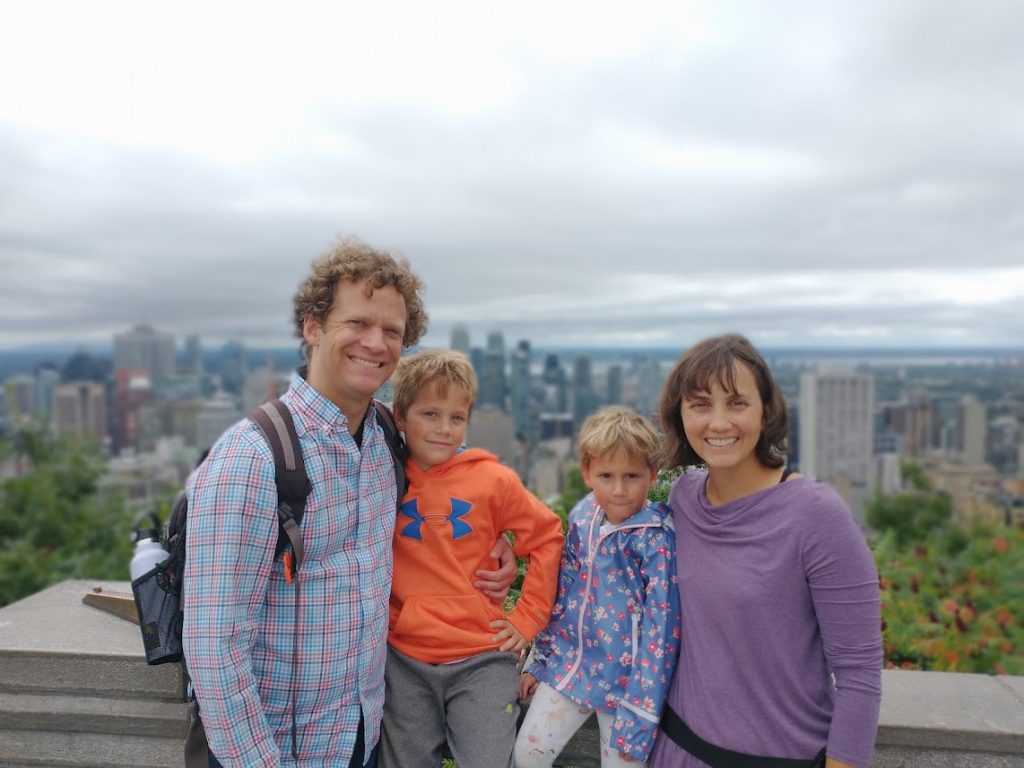

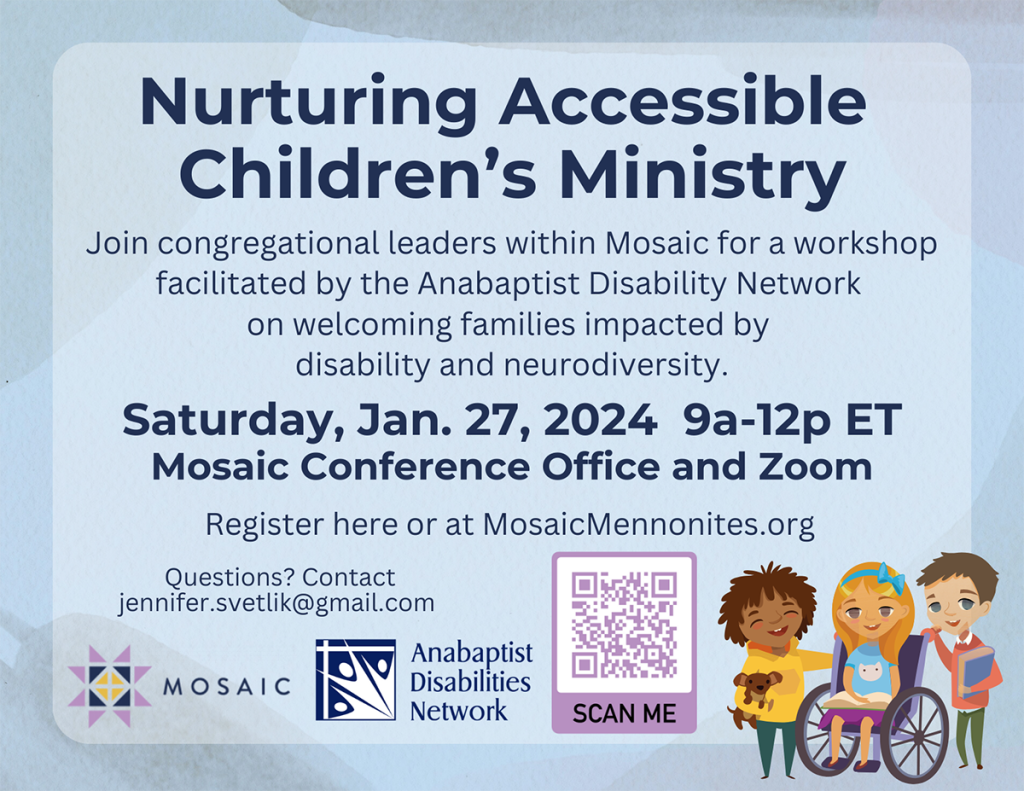

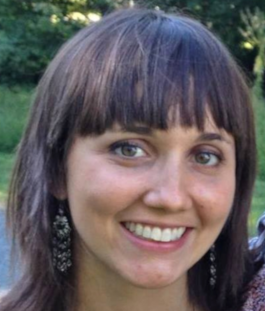
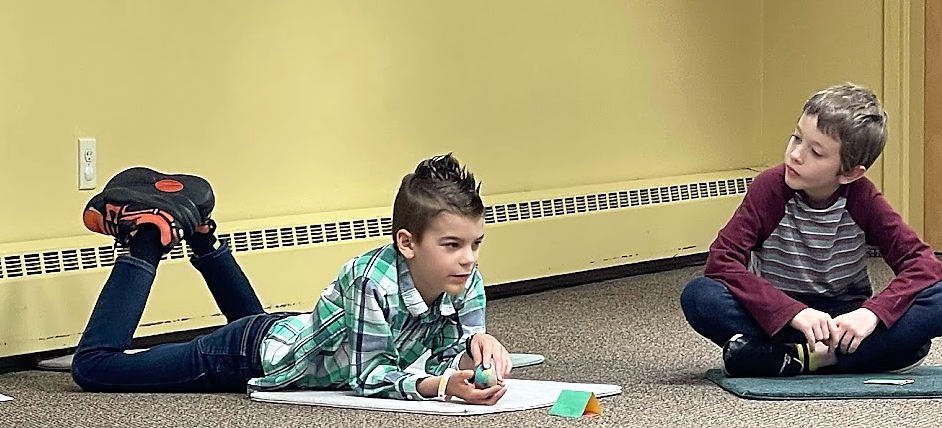
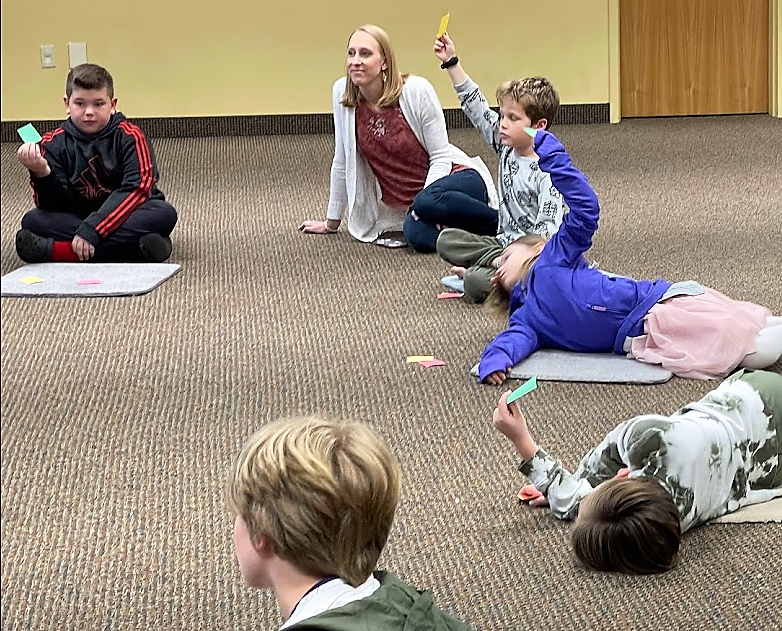





 Listening for God’s calling. Serving their home communities. Learning from new communities. Cultivating pastoral skills. These are some of the hopes that six interns bring to their time of service and formation with Franconia Conference this summer. They come as part of the
Listening for God’s calling. Serving their home communities. Learning from new communities. Cultivating pastoral skills. These are some of the hopes that six interns bring to their time of service and formation with Franconia Conference this summer. They come as part of the 
